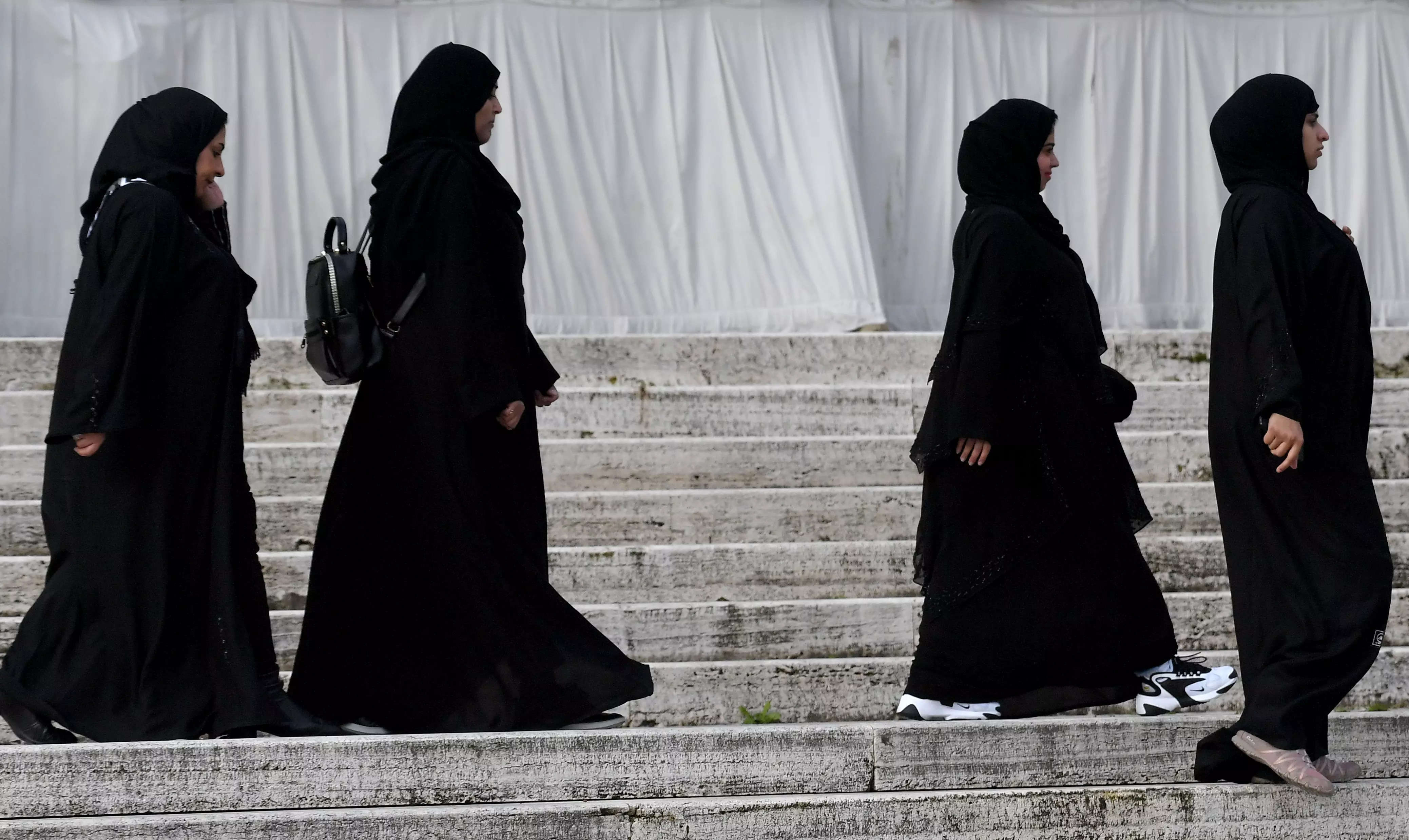France Enforces Ban on Girls Wearing Muslim Abaya Dresses in Schools, Citing Secularism

France Enforces Ban on Girls Wearing Muslim Abaya Dresses in Schools, Citing Secularism
In a recent development that has stirred debate across France, the education minister, Gabriel Attal, has announced a ban on girls wearing Muslim Abaya dresses in schools. This decision comes as part of the country’s commitment to upholding the principle of secularism, known as laïcité. The ban, set to take effect at the beginning of the new term next week, has raised discussions about cultural expression, religious freedom, and the role of the state in shaping individual choices.
The Abaya dress, a long and flowing garment commonly worn by Muslim women, has become a symbol of modesty and faith for many. However, the French government’s stance asserts that the dress contradicts the values of laïcité, which separates religious beliefs from public institutions. This ban is not without controversy, as it navigates the delicate balance between preserving religious freedoms and ensuring a secular environment within schools.

France has a rich history of secularism, with laïcité deeply ingrained in its society. The principle aims to maintain a clear distinction between the state and religious institutions, promoting equality and preventing any religious group from gaining dominance. Supporters of the ban argue that allowing religious attire like the Abaya in schools could undermine the separation of church and state, potentially leading to divisions among students and disrupting the learning environment.
Minister Attal, in a statement, emphasized that the decision was not intended to target any specific religious group but rather to maintain a neutral and inclusive atmosphere in educational institutions. The ban on Abaya dresses is an extension of existing regulations that prohibit conspicuous religious symbols and attire in schools, such as the hijab and large crucifixes. These regulations have been in place for years, with the intention of promoting unity and equality among students.
However, critics of the ban argue that it infringes upon individual religious freedoms and disproportionately affects Muslim students. They contend that the Abaya dress is not a disruptive or overtly religious symbol, and its prohibition is a manifestation of Islamophobia. Advocates for religious freedom stress the importance of respecting diverse cultural practices while also recognizing the need for a secular educational environment.
The ban also raises questions about the role of the state in dictating personal choices and the boundaries of cultural assimilation. France’s history of assimilation policies, often referred to as “French exceptionalism,” has aimed to create a unified national identity by discouraging visible displays of religious affiliation. However, opponents argue that these policies can lead to erasure of cultural diversity and contribute to a homogenous society that stifles individual expression.
Public opinion on the ban is divided, reflecting the complexity of the issue. Some citizens support the government’s decision, citing concerns about religious influence in public spaces and the need to prioritize national identity. Others, including human rights groups, believe that such bans undermine the very principles of liberty, equality, and fraternity that France seeks to uphold.

International reactions have also poured in, highlighting the global significance of the debate. Some countries view the ban as an infringement on religious freedom, while others see it as a legitimate way for France to preserve its unique secular values. The controversy serves as a reminder of the ongoing struggle to find common ground between the principles of multiculturalism, religious freedom, and national unity.
As the ban takes effect, schools and communities are preparing for potential challenges and discussions. Educators are tasked with maintaining an environment that respects students’ beliefs while adhering to state regulations. It presents an opportunity for dialogue, education, and understanding among students from diverse backgrounds.

In conclusion, France’s decision to ban girls from wearing Muslim Abaya dresses in schools marks a significant development in the ongoing conversation about secularism, religious freedom, and cultural expression. The move reflects the nation’s commitment to maintaining a secular educational environment, while also igniting debates about the limits of state intervention in personal choices and the preservation of cultural diversity. As the ban unfolds, it remains to be seen how France will balance its deep-rooted secular traditions with the evolving landscape of cultural and religious identities.



